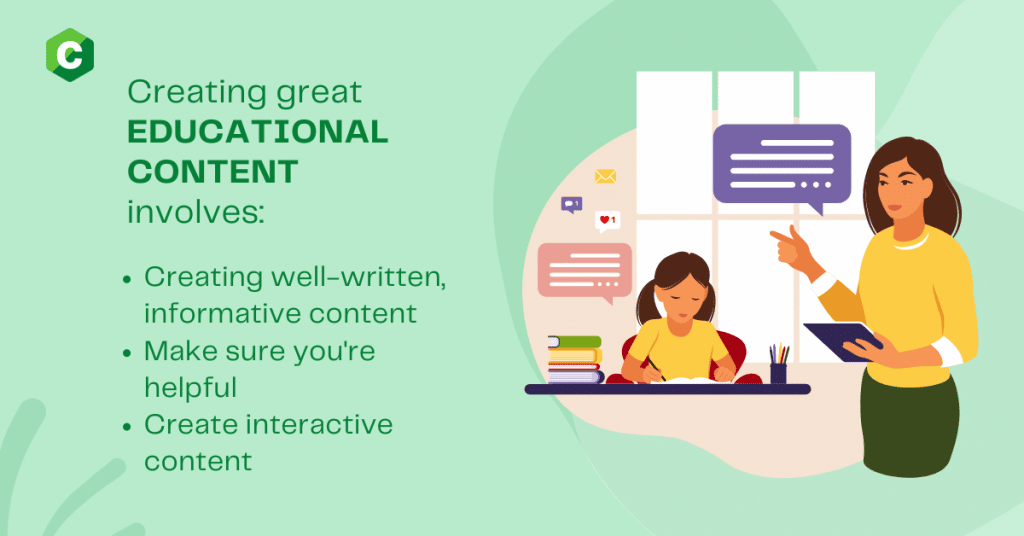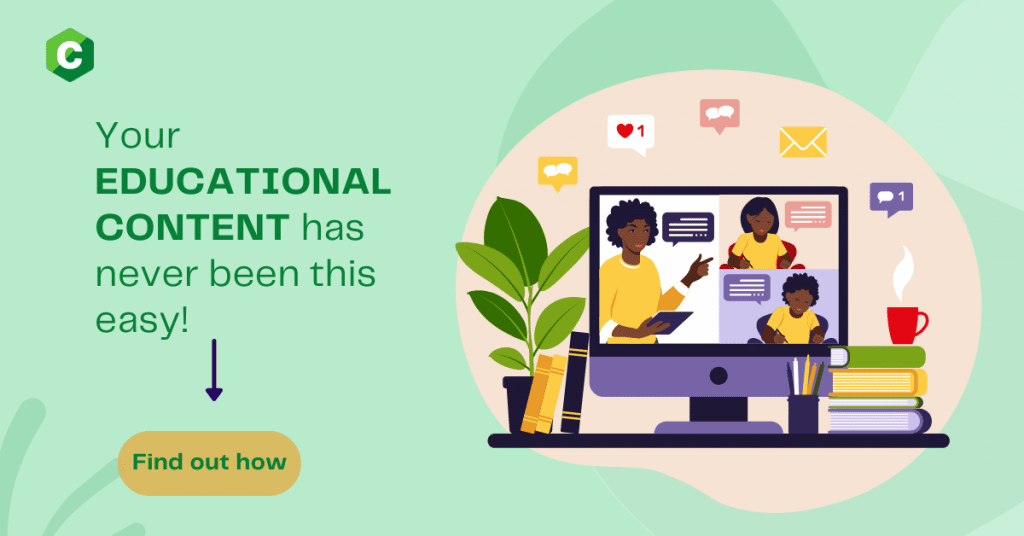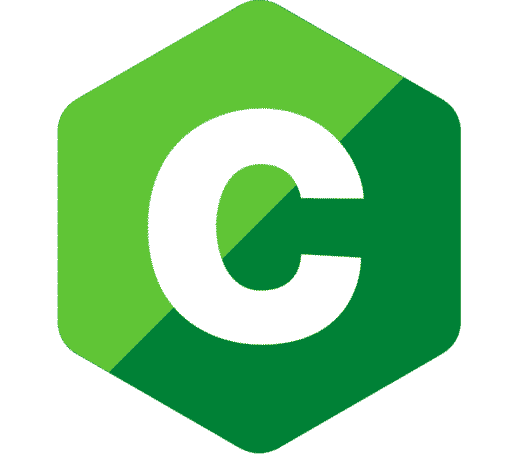Coming up with educational content may seem daunting because there are so many different topics to choose from. And you have to keep your readers educated, entertained, and engaged. This article will highlight some of the best educational content ideas for you. We’ll also provide solutions for finding inspiration when you’re feeling stuck.
But first, why is it important to write about educational content for your readers? Educational content helps to inform your audience about a particular topic. It can be helpful in many ways, such as providing new information to help them make better decisions or understand a complex issue. Additionally, it can also help to build trust with your readers. By demonstrating that you are knowledgeable about a subject and providing accurate information, you can show that you are a reliable source of information.
So whether you’re looking for content ideas for a new blog post or an upcoming presentation, read on for some helpful tips!
Educational Content Ideas: The Division
It’s always a good idea to have your educational content ideas divided into various categories. This makes it easier to find the right educational content for your needs. It also lets you keep track of your content, helping you save on time, labour, and money. Here are the various categories discussed in detail.
Content-based on the subject area
One of the best ways to keep educational content organized and easy to navigate is to divide it based on the subject area. This way, students (or anyone else accessing the content) can quickly find what they’re looking for without searching through a jumble of unrelated information. This approach also makes it easier to add new content since it is slotted into the appropriate section. Additionally, it allows you to dive deeper into different subjects, which will be highly beneficial for students who might need different levels of information depending on their educational needs.
Examples of educational subject-based blog topics:
- How to solve an algebraic math equation.
- How to be fully prepared for a pop quiz.
- Writing a book report.
- How to improve your grammar for literature class.
- How to get good grades for your biology lab reports.

Content-based on your school
Dividing up your educational content ideas by school can help ensure that each level receives information appropriate for their developmental needs. It can also help you target specific outcomes for each group, better utilizing your resources. In addition, grouping students by the school can create a sense of community and allow for more personal interaction between students and educators. However, remember that not all students learn at the same pace or in the same way. So, while grouping by the school can have some educational benefits, you’ll need to consider what will work best for your specific students and educational goals.
Examples of educational school-based blog topics:
- The best colleges in the US for international students (and why)
- Best online universities that offer Digital Marketing courses.
- Universities with the best football programs.
- The best colleges for a nontraditional student.
- Colleges that fully fund scholarships and grants.
Content-based on difficult topics in school
While in school, students may face many difficulties, and you should use this to your advantage and share different ways to make their experience smoother. It is beneficial to talk about dealing with complex topics like bullying. With that, students can better understand and process your material. In addition, it can help ensure that all students receive the education they deserve.
Examples of educational complex blog topics:
- Four healthy tips to fight anxiety and depression as a college student.
- How to prepare for college mentally.
- How to deal with bullying in high school.
- Five ways to pick your guidance counsellor in college.
- How to report sexual assault from a professor/lecturer.
Shareable content
If you’re looking for educational content ideas to engage your audience and promote your brand, consider dividing your content based on shareable content. In fact, as educational content marketers know all too well, school can be a hectic time for teachers and students. Therefore, you can create accessible content for your audience to consume and share with friends and colleagues. Plus, creating shareable content can reach a wider audience and build brand awareness.
Examples of educational shareable blog topics:
- How to save up money for college.
- How to stay a productive day as a student.
- Five apps students can use to make extra money
- Different types of jobs you can do during college
- How to apply for scholarships

Tips for Creating Great Educational Content
Educational content is not always easy to produce. It takes time and effort to research and write scholarly articles, create educational videos, and develop educational games. Follow these great tips so that you can produce great educational content.
Generate quality content
In a world where we are bombarded with content from every direction, it’s more important than ever to ensure that our content is high quality. Creating quality, well-written, informative content will make you more likely to engage with a larger audience, resulting in higher visits to your blog. In addition, quality content tends to be more evergreen than lower-quality articles, which means it will continue to generate traffic long after the content is published.
Be helpful
If you’re a blogger, you know that one of the most important things you can do is provide your audience with value. But what does that mean? Value can take many forms, but some educational content ideas include teaching your audience something new, helping them solve a problem, or providing them with entertainment or inspiration. Anything will add to your reader’s experience and make them want to come back for more. So next time you sit down to write an article or create a piece of content, ask yourself how you can add value to your audience.
Create interactive content
When writing educational content, capturing your reader’s attention from the start and keeping them engaged throughout is essential. If you lose your readers’ interest, they will likely click away and never return. So how can you make sure you keep your readers engaged? Start with an interesting hook that will make them want to read on. It could be a surprising fact, a story, or a question that piques their curiosity. Once you have their attention, it’s crucial to maintain momentum by writing clearly and concisely.

Promoting Your Educational Content
If you’re running an educational website or blog, promoting your content is essential to ensure that people are aware of it and can find it easily. By boosting your educational content, you’ll be able to reach more people and make a lasting impact. Here are the various ways you can upgrade your content.
Creating shareable content
Educational content is more likely to be shared if it is easy to read and understand. Using visuals, such as graphics and images, can also help make educational content more engaging and leave an imprint on your readers. You can also choose to include links to relevant websites and resources that can help to provide further context and information for readers.
Using social media
If you want to take your blogging career to the next level, social media is a powerful tool that can help you to do just that. You can reach a wide range of potential readers by sharing your content on sites like Twitter, Facebook, and Instagram. But promoting your content effectively requires more than just hitting the share button. In fact, to engage people, you need to post educational content ideas that will pique their interest and encourage them to click through to your blog.
Create a newsletter
A newsletter is a great way to get your educational content ideas in front of a wider audience and build a loyal following. First, decide what content ideas you want to include in your newsletter. You may wish to feature educational articles, tips, tricks, or links to your latest blog posts. Next, design your newsletter. You will need to come up with a catchy headline and an attractive layout. Remember that people are more likely to read something that looks appealing.

Final Thoughts!
There you have it! A comprehensive guide to educational content ideas; what they are, how to categorize them, some ideas you can use, and ways to ensure your blog is successful. Therefore, we hope this gives you a clear understanding on ways to come up with creative content that will keep your readers engaged.
If you need help putting any of these concepts into action, don’t hesitate to contact Content Clerks. Our experienced professionals are here to help you create engaging and informative content that will boost your website traffic and increase your bottom line.
Thanks for reading!
This content is created to provide educational value to the reader or viewer. It can include academic articles and blog posts as well as educational infographics and videos.
It helps learners to retain information and to apply it in real-world situations.
This content helps to improve critical thinking and problem-solving skills.
It inspires learners to pursue their interests and reach their full potential.
It also helps to build bridges between people of different backgrounds and cultures.
You can create all sorts of educational content, depending on your interests and expertise. You could write blog posts or articles on topics you’re passionate about, produce video tutorials or webinars on how to do something, or even develop an entire online course on a particular subject.

